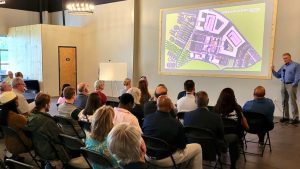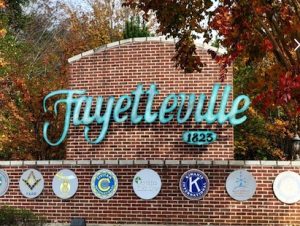No new or different rules for businesses. That’s the effect of the Fayetteville City Council’s approval of expanded boundaries for the Downtown Development Authority (DDA) at the April 1 meeting.
The expansion along portions of North Glynn Street and in a smaller area along the north side of Ga. Highway 54 West will bring no change in city ordinance requirements.
The unanimous vote expanded the DDA boundaries on the west side of North Glynn from Lafayette Avenue and Tiger Trail up to Commerce Drive at Ga. Highway 314. On the east side of North Glynn the expanded area runs from North Jeff Davis to Banks Road.
A significant portion of the North Glynn Street expansion includes the Lafayette Education Center and the Fayette County High School stadium. Main Street Director Brian Wismer said the property, along with the adjacent Walker Concrete plant further to the north, would have redevelopment potential in the future even though there are no specific plans for the area at this time.
The proposal, though to a lesser extent, also includes commercially zoned properties along Hwy. 54 West and Brandywine Boulevard between Sharon Drive and the area of Marquis Drive.
Wismer said the expansion will impose no new requirements on issues such as architectural design and signage. The advantage of expanding the DDA boundary comes in the form of state and federal incentives that are applicable to the DDA, he said.
Federal and state incentives are often associated with these redevelopment projects in the form of low-interest financing and job creation tax credits, Wismer said. These opportunities are typically funneled through local downtown development authorities because of their abilities to provide direct incentives for redevelopment where government agencies are limited or restricted, Wismer added.
“With those incentives and credits the DDA is typically the applicant, so DDA would pass those incentives and credits on to the owner,” Wismer said. “(Expanding the boundaries) is intended to help the redevelopment of business.”
Wismer said the proposal resulted from ideas presented in the recent City Council retreat during conversations on redevelopment within portions of the city. The council is already anticipating an upcoming referendum that would establish tax allocation districts for business redevelopment in some of the city’s older commercial areas.












Leave a Comment
You must be logged in to post a comment.